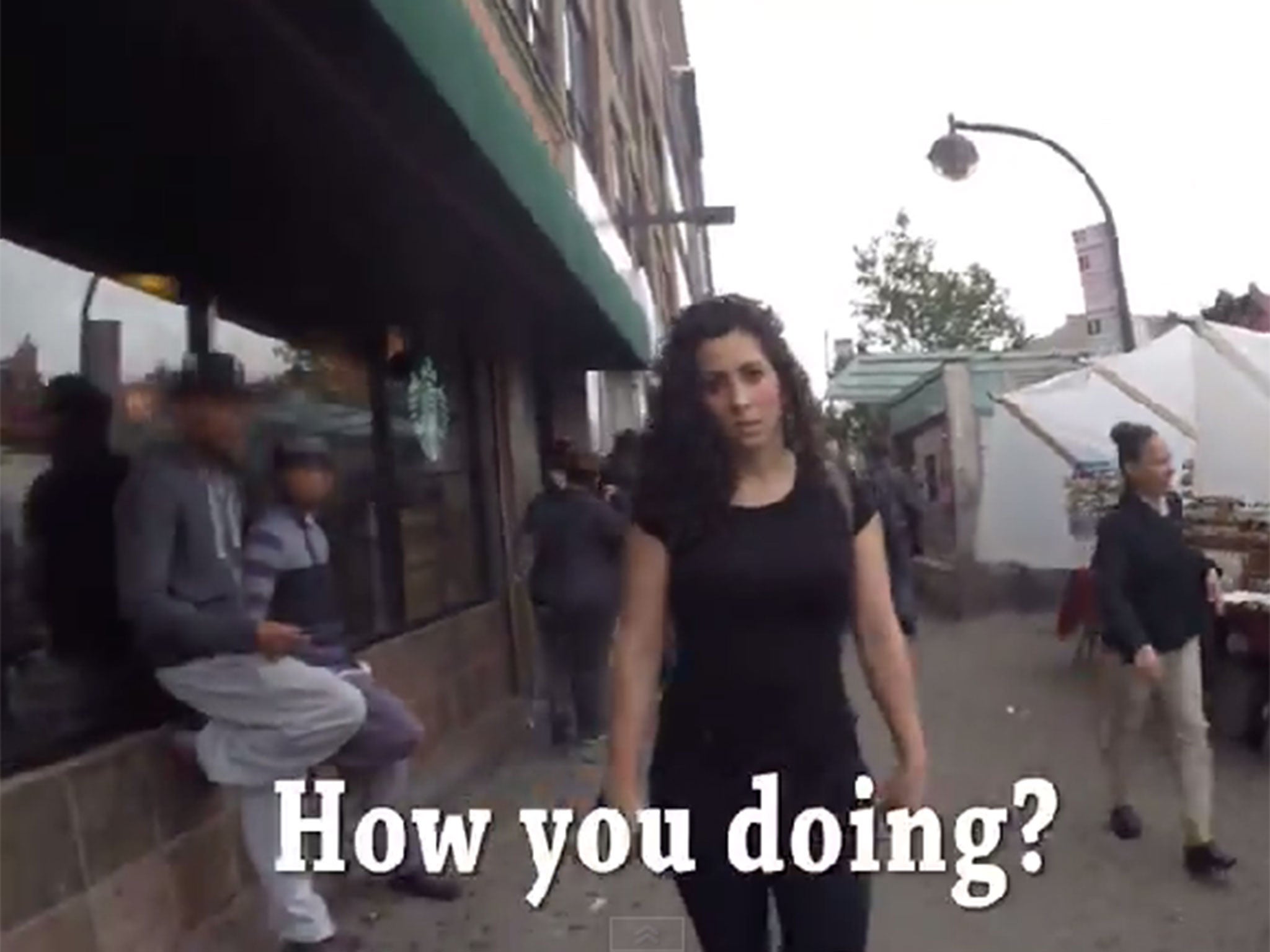Being catcalled, groped and masturbated at is a common part of the female experience
A woman being harassed on the street over a hundred times in a day might shock men, but it's something every woman can relate to

Walking through a city anonymously and taking in how it feels to be lost in the crowd is a unique joy. Sadly, that cloak of urban invisibility is an impossible dream when your body is constantly up for loud, public appraisal by total strangers.
This viral video from HollabackNYC demonstrates the frequency of street harassment. It was filmed in New York, but the streets of British towns and cities are by no means immune.
“Nice arse, luv!” “Show us your tits!” “Hey babe, give us a smile!” Comments like this are a daily psychic drain for those on the receiving end of them; disproportionately women and LGBTQ people.
While a one-off comment could be dismissed as an inappropriate misstep of an errant opportunist, as the video clearly shows, this is about a global epidemic of entitled men (and it is mostly men) and the effect of their actions is cumulative, like a thousand tiny pin pricks.
Street harassment – living with it, discussing it, challenging it – comes with a side order of systematic disbelief. On our Hollaback London website we publish hundreds of stories of harassment, each of which is pinned to a map that shows exactly where in the city it happened. We also receive, like clockwork, comments on these stories suggesting that its author is paranoid, delusional or just straight up lying.
Our video clearly demonstrates that not only does street harassment exist, it happens with ridiculous frequency, it is harmful, depressing and sometimes very, very scary.
What it is definitely not proof of is the racist myth that harassers are predominantly black and latino. This is one snapshot into one day in New York, and cannot be an exhaustive representation of everyone’s experience. As other Hollaback organisers from Mumbai to South Korea to Belgium will attest to, people of every possible background and ethnicity harass, it is not a "cultural problem". I hope future videos can show this more clearly.
You could almost hear the collective shout of “See – it really is this bad!” as we surpassed a million views. In a world where women’s truths are constantly picked apart, where they must even resort to carrying mattresses through college campuses in protest, or changing their name three times to escape their rapist’s’ defenders, this video has power because it is proof.
I set up Hollaback London with Julia Gray in 2010 after I’d been groped, grabbed, openly masturbated at, chased down streets and up stairs, and followed to my door one too many times. I can’t begin to count the verbal comments that have left me feeling humiliated and small, left with house keys jutting out between my knuckles.
I've been harassed by bus drivers, shopkeepers, neighbours, bin men, groped at the Post Office and the GP surgery. Of course #notallmen harass, but if you’re a bloke, why not ask your female friends, your family or work colleagues about their experiences of harassment?
Ask if she’s ever involuntarily braced herself when walking past a group of men on the street, and when you hear the answer, think carefully about whether you pointing out that you’re one of the good ones is really the first thing she needs to hear.
This needs to be the start of a long overdue conversation about what we can do to challenge behaviour that leaves so many people angry and afraid, every day. Talking to strangers is not and should not be a crime, of course, but threatening a woman with physical violence under the false guise of a supposed “compliment” must be re-evaluated as socially unacceptable.
Giving everyone the knowledge that they will be believed if they choose to report something illegal is crucial - as much "physical" harassment is actually an offence under the 2003 Sexual Offences Act. That said, long-term solutions will be focus less on legal punishments and more on social and cultural shifts. Let’s start with taking collective responsibility as bystanders.
An example? Next time you see someone being made to feel uncomfortable on the street, try asking them for the time. This gives them an “out” in a discrete way, it puts you at no risk whilst interrupting the harasser and making them aware they are being watched. Tiny action; big difference.
Bryony Beynon is Co-Director of Hollaback London




Join our commenting forum
Join thought-provoking conversations, follow other Independent readers and see their replies